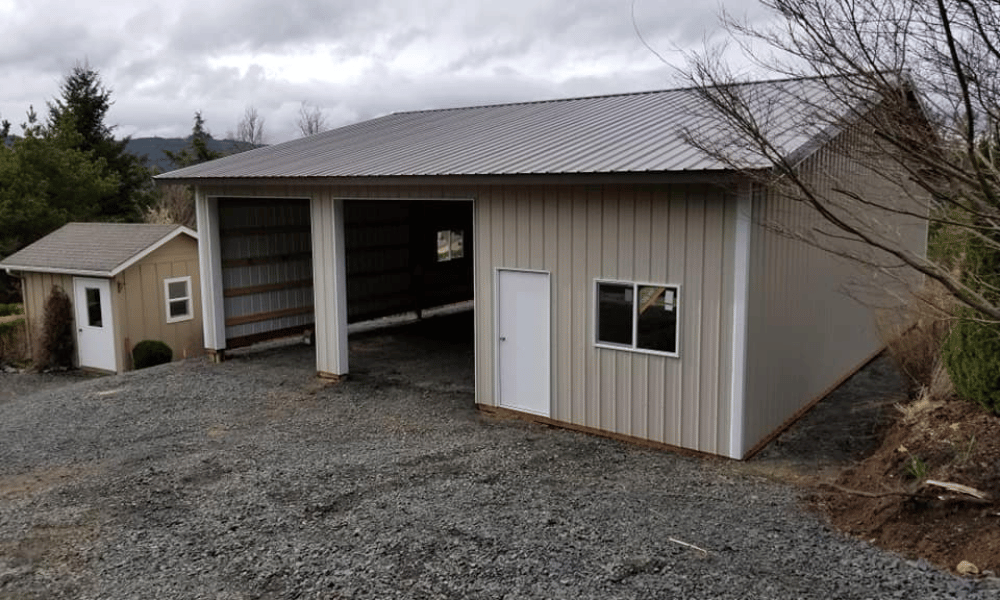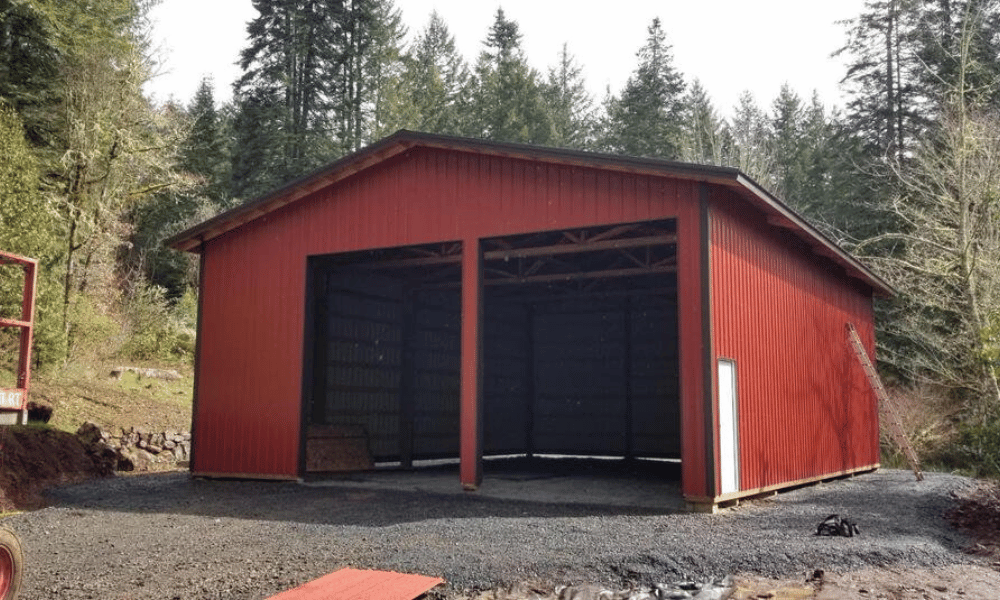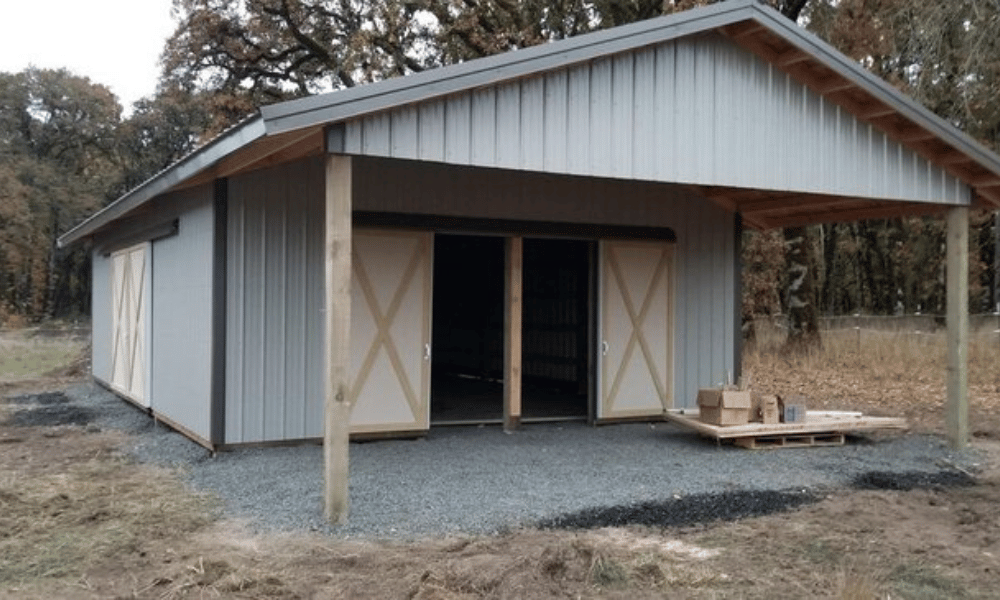Designing outdoor spaces can be a thrilling yet daunting endeavor. Whether you're creating a serene garden, a lively patio for gatherings, or even considering structures like a pole barn for storage or activities, the key lies in meticulous planning. In this article, we’ll delve into various strategies and tips that will help you design an outdoor space that’s not only functional but also aesthetically pleasing.
Why Is Planning Important in Outdoor Design?
Before we dive into the specifics of designing outdoor spaces, let's take a moment to discuss why planning is essential. Proper planning allows you to visualize your space and make informed decisions about layout, plants, features, and materials. It ensures that all elements work harmoniously together and helps avoid costly mistakes down the line.
Understanding Your Space: A Preliminary Step
When it comes to designing any outdoor area, understanding the existing space is crucial. Consider these elements:
- Size: Measure your area accurately. Shape: Is it rectangular, square, or irregular? Topography: Are there slopes or flat areas? Sunlight Exposure: Identify sunny and shaded spots throughout the day.
Taking note of these factors will guide your design choices effectively.
Setting Goals for Your Outdoor Space
What do you want from your outdoor space? Setting clear goals will steer your design in the right direction.
Types of Outdoor Spaces
Gardens: Are you aiming for tranquility with flower beds? Entertainment Areas: Do you envision hosting barbecues or parties? Functional Spaces: Will you need storage solutions like a pole barn?Identifying your primary purpose will streamline decision-making.
Budgeting: Financial Planning for Outdoor Projects
Every project needs a budget—outdoor designs are no exception. Determine how much you're willing to spend and allocate funds accordingly.
- Materials Cost: Wood, stone, plants Labor Costs: DIY vs hiring professionals Maintenance Expenses: What's needed once it's all set up?
Having a solid budget helps manage expectations and keeps expenses in check.
Choosing the Right Features for Your Outdoor Space
When designing outdoor spaces, consider incorporating features that reflect personal taste while enhancing usability.

Landscaping Elements That Elevate Aesthetic Appeal
Landscaping is an art form; it sets the tone for your entire outdoor area.
Plants: Choose native plants that require less maintenance. Pathways: Use stones or bricks to create inviting walkways. Water Features: Consider ponds or fountains for tranquility.Incorporating Structures Like Pole Barns
A pole barn can serve various purposes—from housing tools to acting as an open-air venue for events. Think about how such structures can integrate into your design without overpowering it.
Outdoor Furniture: Comfort Meets Style
Selecting the right furniture significantly impacts usability:
Seating Arrangements: Sofas, chairs, benches—what suits your style? Tables: Dining tables for meals outdoors; coffee tables for relaxation. Accessories: Add cushions and throws for comfort and color!Design Principles to Consider in Outdoor Spaces
Principles of design come into play when planning an outdoor space.
Balance and Harmony in Design
Balance refers to distributing visual weight across your space:
- Symmetrical balance uses identical objects on either side. Asymmetrical balance employs different objects of equal visual weight.
Achieving harmony means ensuring all elements work well together—colors should complement one another while materials should mix cohesively without clashing.
Emphasis: Creating Focal Points
Focal points draw attention:
- A striking tree can serve as a centerpiece. Unique sculptures or art installations can offer visual interest.
Ask yourself—what do I want visitors to notice first?
Utilizing Colors Effectively in Outdoor Design
Color choices influence mood and perception significantly!
Choosing Color Schemes Wisely
Cool Colors (blues & greens): Create serene atmospheres. Warm Colors (reds & yellows): Evoke energy and excitement.Consider how color schemes interact with natural elements around them!
Lighting Solutions To Enhance Your Space At Night
Imagine enjoying your beautifully designed outdoor area after sunset!
Different Types Of Outdoor Lighting Options
String Lights: Perfect for adding warmth during gatherings. Solar Lights: Eco-friendly options that illuminate pathways. Spotlights: Highlight special features like trees or sculptures.
Effective lighting extends usability while improving safety!
Sustainability Practices In Outdoor Design
As eco-consciousness rises globally, sustainable practices have found their way into outdoor designs too!
Eco-Friendly Materials And Plants
Consider using:
Reclaimed wood Native plants that require less waterThese choices reduce environmental impact while providing long-term benefits!
Seasonal Considerations For Your Outdoor Spaces
Weather affects every aspect of our lives—including our outdoor environments!
Planning For Different Seasons
Develop strategies to deal with seasonal changes:
Summer Shade Solutions (umbrellas & pergolas) Winter Protection (shelters & windbreaks)Adapting designs ensures year-round enjoyment!
Incorporating Technology Into Outdoor Designs
With advancements in technology come innovative ways to enhance outdoor experiences!
Smart Systems For Efficient Management
Consider smart irrigation systems that conserve water without sacrificing plant health! Also think about integrating sound systems or Wi-Fi coverage outdoors—making gatherings more enjoyable!
Creating Zones Within Your Outdoor Area
If you've got ample space available—consider zoning!

Defining Areas With Purpose
Relaxation Zone (hammocks & lounge chairs) Dining Zone (tables & grills) Gardening Zone (raised beds & tools)
Zoning adds functionality while keeping things organized!
Personalizing Your Outdoor Space
Add touches reflecting personality!
Unique Decor Elements
From quirky garden gnomes to elegant fountains—your personal flair makes it distinctively yours!
Frequently Asked Questions About Designing Outdoor Spaces
1) What’s the best way to start designing my outdoor area?
Start by assessing what you want from the space—set clear goals as discussed earlier!
2) How do I choose plants suitable for my climate?
Research native species suited for local conditions—they typically thrive better!
3) Is hiring a professional designer necessary?
It depends on complexity; simple projects may not require one—but pros add expertise!
4) What maintenance is required after installation?
Regular upkeep includes watering, pruning & occasional cleaning!
5) Can I incorporate Pole Barns a pole barn into my design plan?
Absolutely! Just ensure its function aligns with overall design goals!
6) How do I create visual interest throughout my yard?
Vary heights of plants/furniture whilst introducing focal points like sculptures/key features!
Conclusion
Designing outdoor spaces isn't just about aesthetics; it's about creating environments where memories are made! Remember—the key takeaway here is "Planning Is Key! Explore Our Favorite Tips For Designing Outdoor Spaces." So grab those measuring tapes; sketch out ideas; get inspired—and soon enough—you'll transform any ordinary yard into extraordinary living spaces perfect for relaxation and enjoyment! After all—the great outdoors should feel just as inviting as inside our homes—let's make it happen!
